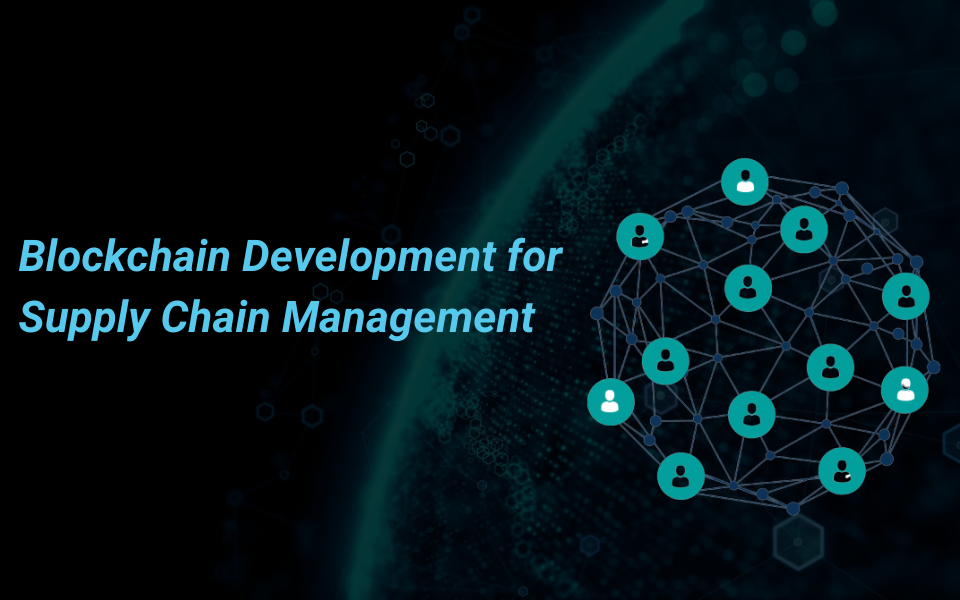Leveraging Blockchain in India’s Logistics and Supply Chain
India’s logistics and supply chain sector is one of the largest in the world, valued at over USD 250 billion and contributing significantly to the national GDP. Yet it remains riddled with inefficiencies—fragmented systems, high transit times, cargo theft, counterfeiting, and lack of transparency. To resolve these bottlenecks, the sector is turning toward emerging technologies like blockchain.
Blockchain, with its decentralized, immutable ledger, can transform how goods move across India’s vast geography by ensuring transparency, traceability, and trust in every transaction. In this blog, we’ll explore how blockchain is reshaping logistics in India, where it’s being applied, and how businesses can benefit from early adoption.
1. What Is Blockchain and Why It Matters in Logistics
Blockchain is a distributed digital ledger that records transactions across a network in a tamper-proof and chronological way. It allows all stakeholders—manufacturers, suppliers, transporters, customs officials, warehouses, and retailers—to access real-time, verified data.
In logistics, this means:
-
Every step of a product’s journey is digitally recorded
-
Smart contracts automate processes like payments and documentation
-
Security and data integrity are guaranteed with no single point of failure
The result is greater efficiency, fewer disputes, and real-time traceability.
🔗 Blockchain Technology Overview – Invest India
2. Blockchain Use Cases in Indian Logistics
a. Freight Tracking and Proof of Delivery
With multiple transporters often involved in long-haul shipments, tracking consignments can be unreliable. Blockchain provides an immutable trail from dispatch to delivery.
-
Each scan and checkpoint update is time-stamped on the ledger
-
Eliminates tampering, delays, or loss claims
-
E-signatures and smart contracts can confirm delivery and trigger automatic payments
b. Cold Chain Logistics
India’s cold chain industry, crucial for pharmaceuticals and food exports, suffers from inconsistent temperature control and lack of documentation.
Blockchain integrates with IoT sensors to:
-
Record real-time temperature and humidity data
-
Log incidents such as temperature breaches
-
Provide auditable records for compliance with FSSAI or global export standards
🔗 Cold Chain Sector in India – NCCD
c. Customs and Border Clearance
Customs clearance is one of the biggest bottlenecks in India’s international trade.
With blockchain:
-
Documents like the Bill of Lading, invoices, and inspection certificates are pre-uploaded
-
Customs officials can verify data without intermediaries
-
Reduces delays, corruption, and costs
Projects such as TradeLens, co-developed by IBM and Maersk, have already demonstrated this in Indian ports like Jawaharlal Nehru Port Trust (JNPT).
🔗 TradeLens & Indian Ports Collaboration – The Hindu BusinessLine
3. Blockchain and Indian Government Initiatives
The Indian government has been supportive of emerging technologies for digital transformation. The Ministry of Commerce and Industry and NITI Aayog are already exploring blockchain’s role in trade and logistics.
Key initiatives:
-
National Logistics Policy (NLP): Aims to reduce logistics costs to 8% of GDP by promoting digital platforms and blockchain.
-
ICEGATE Blockchain Trials: Indian Customs’ electronic data interchange gateway ICEGATE has piloted blockchain to digitize cargo movement.
These efforts are laying the foundation for seamless supply chains backed by transparent and secure data flows.
🔗 National Logistics Policy 2022 – PIB India
4. Benefits for Businesses in India’s Supply Chain
Whether you’re a multinational company, an SME, or a third-party logistics provider, adopting blockchain delivers tangible benefits:
✅ Transparency
All parties have access to the same information, eliminating misinformation and fraud.
✅ Efficiency
Smart contracts automate repetitive tasks like documentation, invoicing, and payments.
✅ Compliance & Security
Helps meet Indian and global compliance standards (e.g., BIS, ISO, FDA) with a full audit trail.
✅ Customer Satisfaction
End-to-end traceability builds trust—especially important in pharmaceuticals, organics, and luxury goods.
5. Indian Startups & Logistics Players Leading the Way
Several Indian startups are pioneering blockchain integration in logistics:
-
KoineArth: Provides supply chain transparency using blockchain-led solutions for real-time product journey visibility.
-
CargoX: Enables electronic Bill of Lading using blockchain for Indian freight forwarders.
-
Zebi: Known for secure data platforms in logistics and land records.
Even legacy players like Tata Steel, Mahindra Logistics, and Adani Ports have begun exploring blockchain partnerships.
🔗 KoineArth Blockchain Supply Chain
🔗 CargoX Blockchain B/L
6. Challenges to Adoption in India
While blockchain holds promise, a few barriers remain:
-
Lack of standardization across the sector
-
High initial implementation costs
-
Limited digital literacy among small players and transporters
-
Integration with legacy systems
To overcome this, businesses must invest in training, partner with specialist vendors, and start with pilot programs before full deployment.
7. The Road Ahead: Blockchain in Logistics 2.0
As India’s supply chain digitizes under initiatives like Gati Shakti, Make in India, and PM GatiShakti National Master Plan, blockchain will evolve from niche trials to sector-wide integration.
Future possibilities include:
-
Blockchain integrated with AI for demand forecasting
-
Digital tokens for supply chain financing
-
Global supply chain interoperability via blockchain consortia
🔗 PM GatiShakti Master Plan – Ministry of Commerce
Conclusion: A Trust Layer for Indian Supply Chains
Blockchain is not just another buzzword. For Indian logistics, it provides a trust layer that eliminates ambiguity, manual errors, and inefficiencies. By offering real-time visibility and traceable operations, it enhances collaboration, reduces friction, and improves resilience.
Foreign businesses sourcing from India, logistics service providers, and manufacturers can all benefit from early blockchain integration—especially with the help of local Indian agents who understand the technology, vendors, and government ecosystem.
